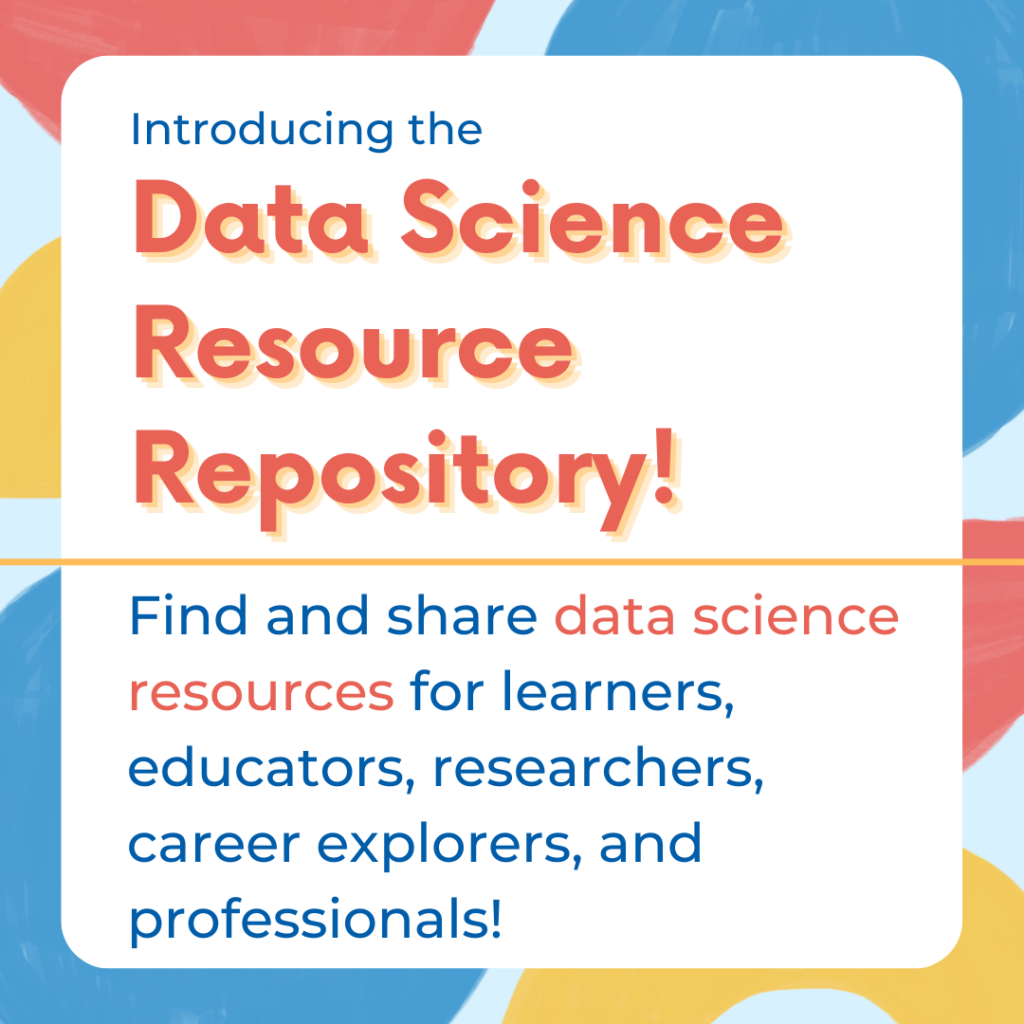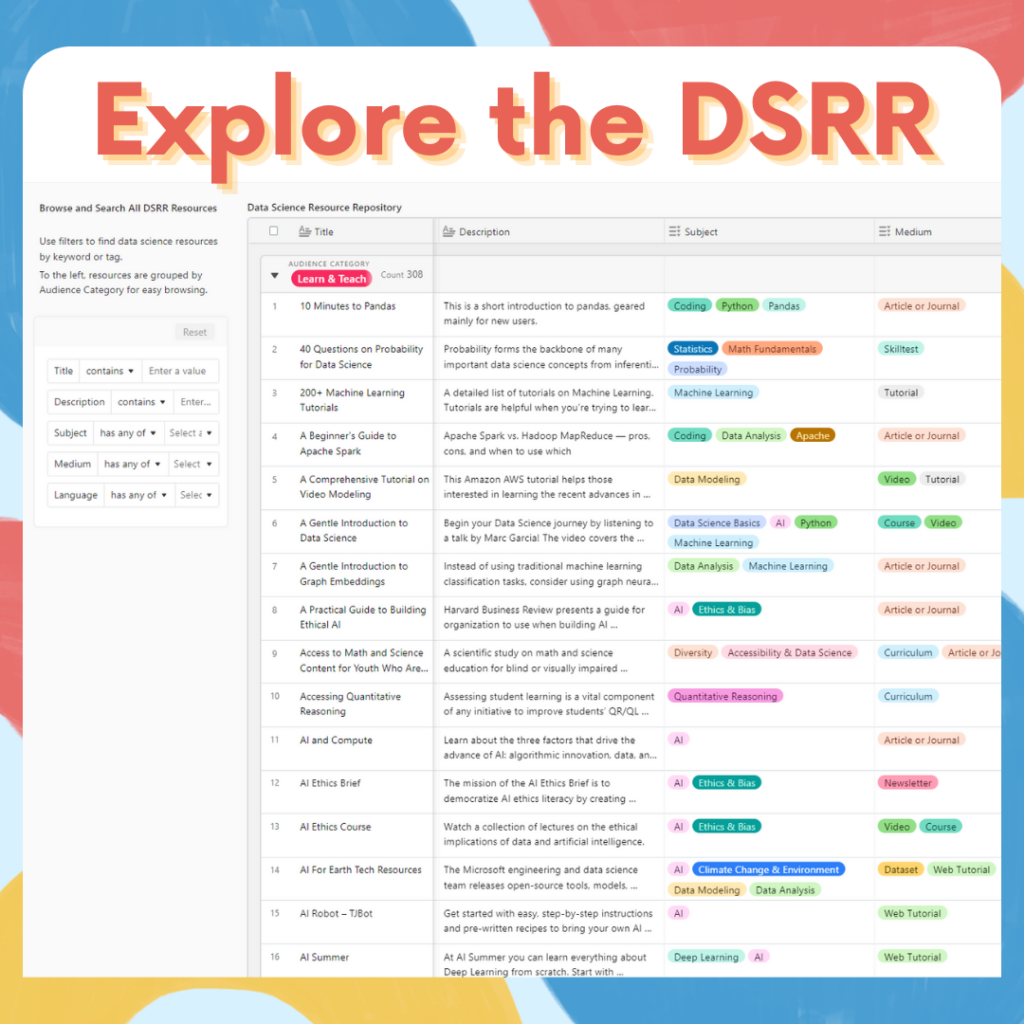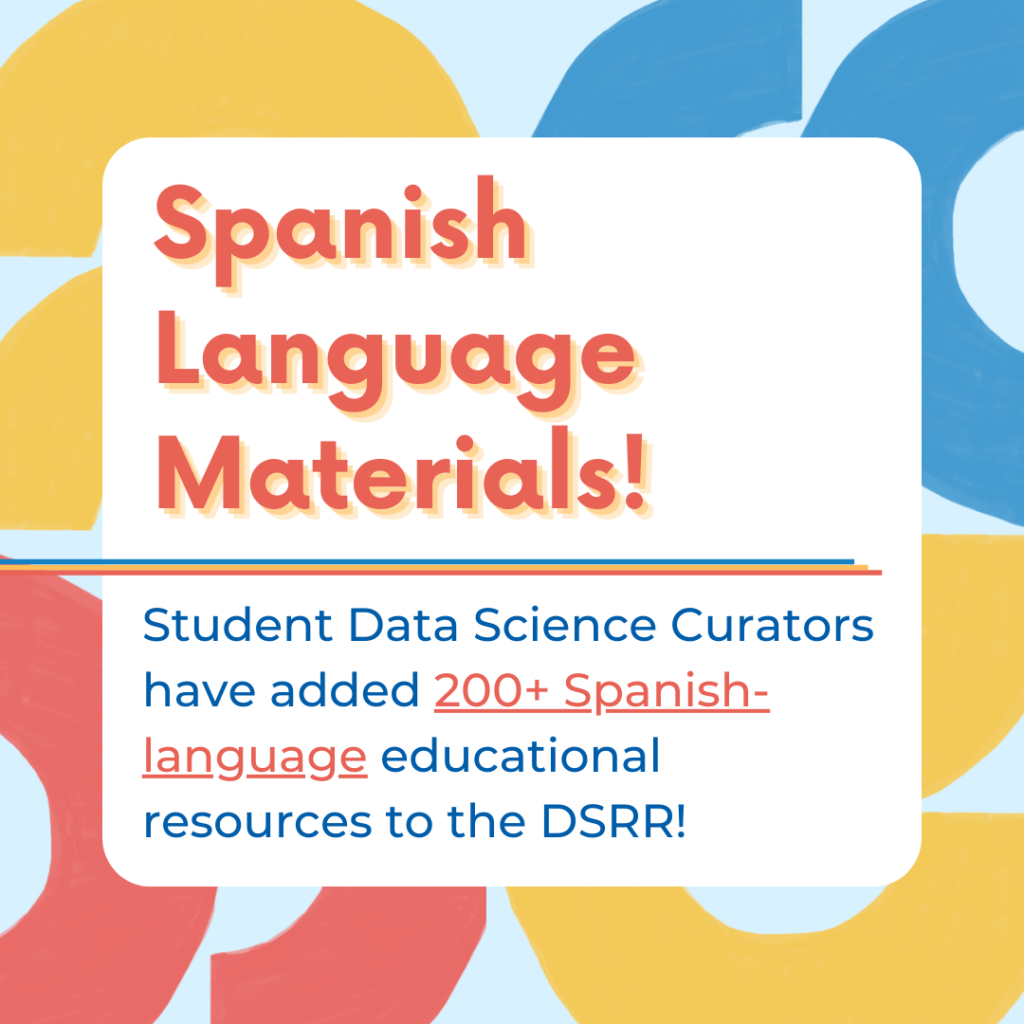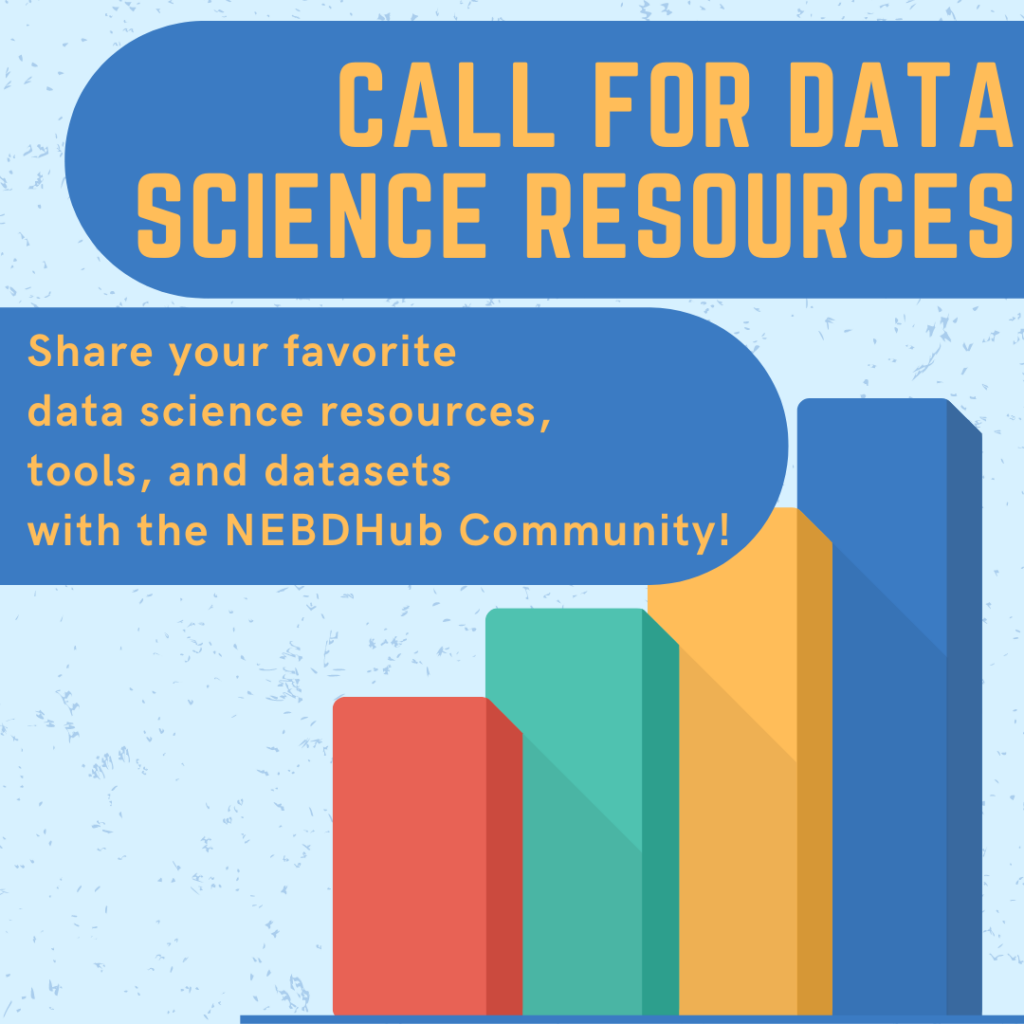
The Data Science Resource Repository (DSRR)

About
The Data Science Resource Repository (DSRR) is a curated set of 1,100+ resources for learners, educators, researchers, career explorers, and professionals that promotes data science literacy.
Data science literacy skills are crucial to the successful development of our economy and provide a strong knowledge base for the future of our workforce. The DSRR leverages open-source resources and best practices to broadly increase data science capacity, with a specific focus on underserved communities. Note that there are a handful of resources in the DSRR which are not open source but can be accessed with an institutional login.
The DSRR includes 900+ English and 200+ Spanish language data science resources from:
- NEBDHub Education + Data Literacy projects
- National Student Data Corps (NSDC)
- Data Science for All (DS4All)
- Big Data for Education
- Related community projects, such as CUAHSI
- Community submissions
- and more!
Access and Explore the DSRR!
The DSRR is hosted on Airtable. To access to the DSRR, please click the button below and create a free Airtable account.
Airtable will ask you to verify your email address. When your email address is verified, click through to the DSRR interface, a purple button at the top of the page.
A limited-function view of the DSRR is available to those without an Airtable profile. Please reach out to the DSRR Team with any questions at contact@nebigdatahub.org.


200+ Spanish Language Materials Added!
As of November 2023, the NEBDHub’s team of Student Data Science Curators have added over 200 Spanish language materials to the Data Science Resource Repository (DSRR).
This initiative was completed in support of the NEBDHub’s Diversity, Equity, Inclusion, and Accessibility policy.
Find other Spanish language data science resources for educators and learners of all academic disciplines and backgrounds on our Spanish Language Resources webpage.

Add Resources to the DSRR
We want to hear from you, the data science community, about your favorite data science and STEM education and research materials!
Help us add more open-source, free resources in English or Spanish to the NEBDHub website and DSRR by submitting suggestions to our team via the links below.
Stay Connected with Us
Email us at contact@nebigdatahub.org with any inquiries or questions.
Some ways to stay connected with the NSDC community:
- Join our Slack channel
- Follow us on Twitter, Instagram, or LinkedIn
- Subscribe to the Northeast Hub YouTube channel
- Sign up for our newsletter
- Check out the REAL Volunteer Program for more collaboration opportunities
